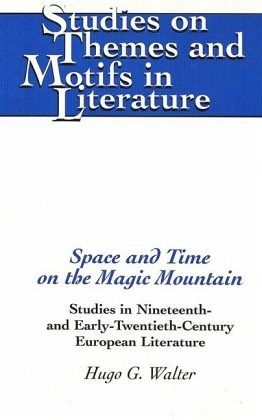Nicht lieferbar

Space and Time on the Magic Mountain
Studies in Nineteenth- and Early-Twentieth-Century European Literature
Versandkostenfrei!
Nicht lieferbar
Space and Time on the Magic Mountain explores the theme of the magic mountain in nineteenth- and early-twentieth-century European literature, especially in selected works of William Wordsworth, Matthew Arnold, James Hilton, and Thomas Mann. The magic mountain, an aesthetically, intellectually, and spiritually unique environment, represents a threshold realm at the interface of life and death, time and eternity, where the protagonist experiences an epiphanic moment culminating in a profound and vital awareness of space and time.



